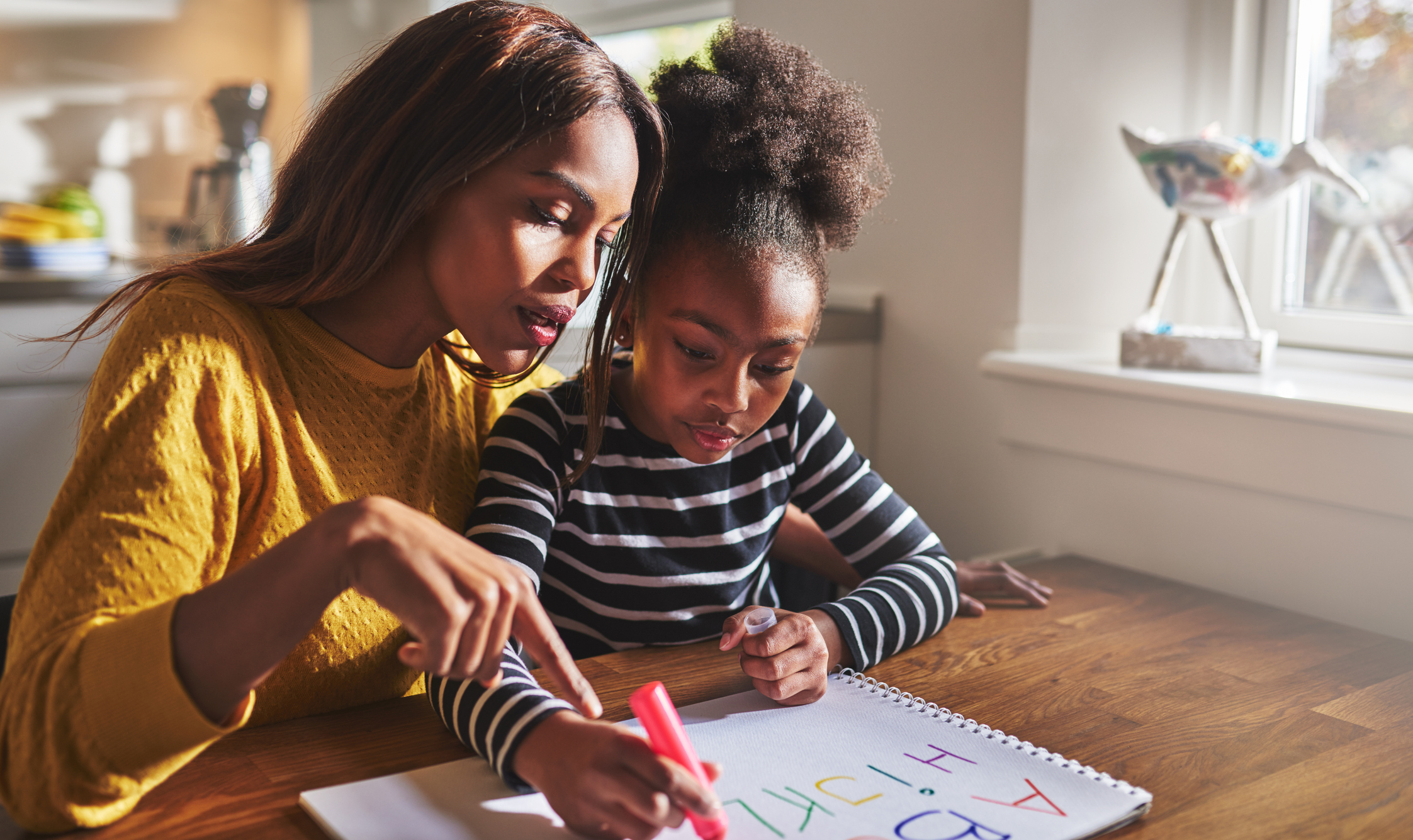Five stories of how lockdown has affected people's lives

One way to help your mental health and wellbeing during the pandemic is by creating a new routine to help structure your day. But how easy is this in reality?
We talked to people to ask them about their experience of creating a routine and how they’ve overcome challenges such as dealing with existing mental health struggles, financial worries, and the new work-school-home life balance.
Tell us about your experience of care
Has your care been disrupted by COVID-19 and its impact on health and social care services? Whether it’s good or bad, we want to hear from you.
It only takes five minutes and your feedback can help NHS and social care services understand the steps they can take to improve care for you and your loved ones.
Dealing with internal struggles
With a pre-existing mental health condition Laura found that the pandemic acted as a trigger for a number of her anxieties. She sought the help she needed to enable her to create a new routine with a clear mind.
“Just before the coronavirus (COVID-19) reached the UK I was in a much better place than I had been for a while. I decided to come off my anti-depressants and was working with the GP to lower my dose before coming off them entirely. Then the stress of COVID-19 hit, affecting everything from home, work, and my mental health. It was all people could talk about and I felt the positive mindset that I’d worked hard for start to slip away.
“But I got help because I was able to recognise this time round that it was what I needed. I phoned the GP to explain how I’d like to return to my original dose and that’s what I did. There’s no shame in saying you need help. In just a couple of days I was able to see things a little clearer. I now make sure that I get up at eight every day, take time away from my screen and go out for a walk to section off my working day from my evening. Everyone tells you to get dressed to start your day off. At first I was a roll out of bed into my second set of pjs kind of person, but the difference it’s made is huge I can’t advise this enough.
“Everyone seems to want to keep in touch over FaceTime, and in theory it’s lovely to keep in contact, but I’ve found that this can get to be a bit too much. There’s suddenly 10 days’ worth of calls scheduled in the diary, on top of my calls from meetings at work, making me feel very attached to my phone when I don’t want to be. I now make sure that I have proper breaks away from ‘scheduled calls’ and am honest with my friends when I postpone them. It’s ok to say that you need a bit of time to yourself.”
Advice and information
Take a look at the NHS website for expert advice and practical tips to help you look after your mental health and wellbeing.

Getting through the day is good enough
Tim told us about the pressure he felt in needing to ‘achieve’ something during lockdown. He found the pressure he was placing on himself was too much, and just getting through the day was enough. Tim now splits his day into non-negotiable and negotiable tasks to help him get back to a stable routine.
“Since being in lockdown I’ve been up and down. At first, I felt that there was a real pressure to come out of this period looking and feeling better than I have before. There was so much time that I needed to do something with it. All I was doing was putting needless pressure on myself.
“I started to feel horrible about everything and soon recognised signs of my depression and anxiety starting to build back up. I couldn’t wake up on time, I was eating more, I was struggling to focus and kept breaking down."
My friends helped reassure me that it’s ok not to feel great all the time. So I took some time out to do nothing – to reset.
“Over the past couple of weeks, I’ve felt much better and getting into a new routine has helped me a lot. I have a list of non-negotiable and negotiable activities that I can do in a day. Non-negotiable activities include things like getting dressed, eating three meals a day, some kind of movement. Negotiable activities are things like reading for 20 minutes, walking 5,000 steps a day – they’re nice to have, but they aren’t essential to my mood. If I don’t do my non-negotiable activities, that’s when I notice myself starting to feel bad again. I also went back through my old CBT notes, and write down my worries on paper so that I can distinguish between worries that I can have some control over, and those that I can’t.
“I try to remind myself that it’s important to have a bit of fun. At first, I felt really guilty about whether I should be enjoying myself when the world isn't in a great place, but then I realised that it’s ok. It’s nice to have something to look forward to, it’s important for your own mental health, and it’s no good punishing yourself, it doesn’t help anyone.”
Mental health helplines
Here's a list of useful organisations, helplines and support groups that can help you with your mental health.

Teacher, provider and mother all rolled into one
Taking on the role of teacher for two children, whilst trying to balance the adjustment of working from home full-time, has been a challenge for Amie. She tells us how she’s shaped her and her family’s routine around the new lockdown restrictions.
“I’m week five into working from home full-time and I’m constantly feeling guilty. I feel guilty when spending time teaching my children and not at work. I feel guilty when I work because I’m not paying enough attention to my children, it’s a really hard thing to balance. I also feel guilty that I’m not educating them to the school’s standard – we don’t know how they were taught at school, only how we were, and this is clearly much different.
“I’m finding it hard not having my own space. Everything is open plan so you’ve just got four of us around the kitchen table trying to work, doing everything from teaching, meetings and eating.
The mental adjustment of this whole thing is by far greater than I’d imagined. I like a plan and a routine, but this doesn’t work when you have children.
“We have developed stages of a routine that we stick to and allowed for flexibility in between these times. For example, the learning day starts at 9. This allows for me and my husband to do a bit of work before the kids get up, and time to have our individual dose of physical activity before the day starts – this has been so important. We keep to the order of learning (Maths and English in the morning) but definitely have more breaks than if the kids were at school.
“What I've realised is that if you’re not committed to something, don’t do it. You need to understand your own limits and not go beyond that. If you’re not committed, leave it for another time as the children notice this and just think that you don’t want to spend that time with them.”
NHS ten tips to help if you are worried about coronavirus
10 ways you can help improve your mental health and wellbeing if you are worried or anxious about the coronavirus outbreak.
Read more
The effect of furlough
The sudden loss of the structure which a 9-5 working day provides can be difficult. Jack told us how he has struggled to find another sense of purpose for his day whilst in lockdown and the effect it’s had.
“Being suddenly told that you are no longer needed at work is hard. Aside from the financial hit that you take by having your pay decreased, you’ve no longer a reason to wake up in the morning. I’ve found that as a result I’ve been sleeping in until the afternoon, and then not being able to sleep until the early hours of the morning – my routine has completely gone out the window.
“I’ve found that I’ve had what feels like irrational anger creep in about my living situation. Due to the lockdown I’ve had to go back home to live with my parents and I love them to bits, but you start to get on each other’s nerves after a while. I’ve found myself becoming very frustrated with some of their actions. It’s hard not having your own space, it gives me anxiety, so I end up just not going downstairs.
“I am trying my best to get a routine going but at the moment there are more bad days than good. I’ve set up a video call with my friends on the weekend so that I’ve got something to look forward to. I guess what gets me through each day is knowing that it’s not forever.”
Mental wellbeing audio guides
From helping to manage your low mood, sadness and depression to overcoming sleep problems, these audio guides from the NHS can help boost your mood.
The worries of a single mum
As a single mum, with two small children aged six and nine, Vicky was already worried about her finances, but this only intensified after the lockdown. Now she also feels stressed about what could happen if her, or her children, were taken ill with COVID-19, as well as the pressure of bills, maintaining a full-time job, and the responsibility of teaching her children.
“The first week was a real struggle. I tried juggling full-time work, caring for my children, running the house, but it became too much on my own. I spoke to family and friends about my situation and they gave me some great advice on what I could do to make things better.
“I spoke to my manager about flexible working, which has been such a relief. Now I can break up the day around my children’s schooling and needs. Ellie and Tom have helped to create a ‘routine sheet’ for their day, which gave more structure for activities, but also meant they feel more involved too."
It was all so overwhelming.
“I was really worried about what would happen to us if I caught coronavirus so I spoke to my parents about a contingency plan. Luckily, they’re happy to step in and take over childcare if I had to isolate. But we've also looked into local support offered by the council and the community if my family couldn’t help out, and that’s been really reassuring.”
Where to go for help as a single parent
Gingerbread has put together a page with information for single parents. For more practical advice you can phone their helpline.


